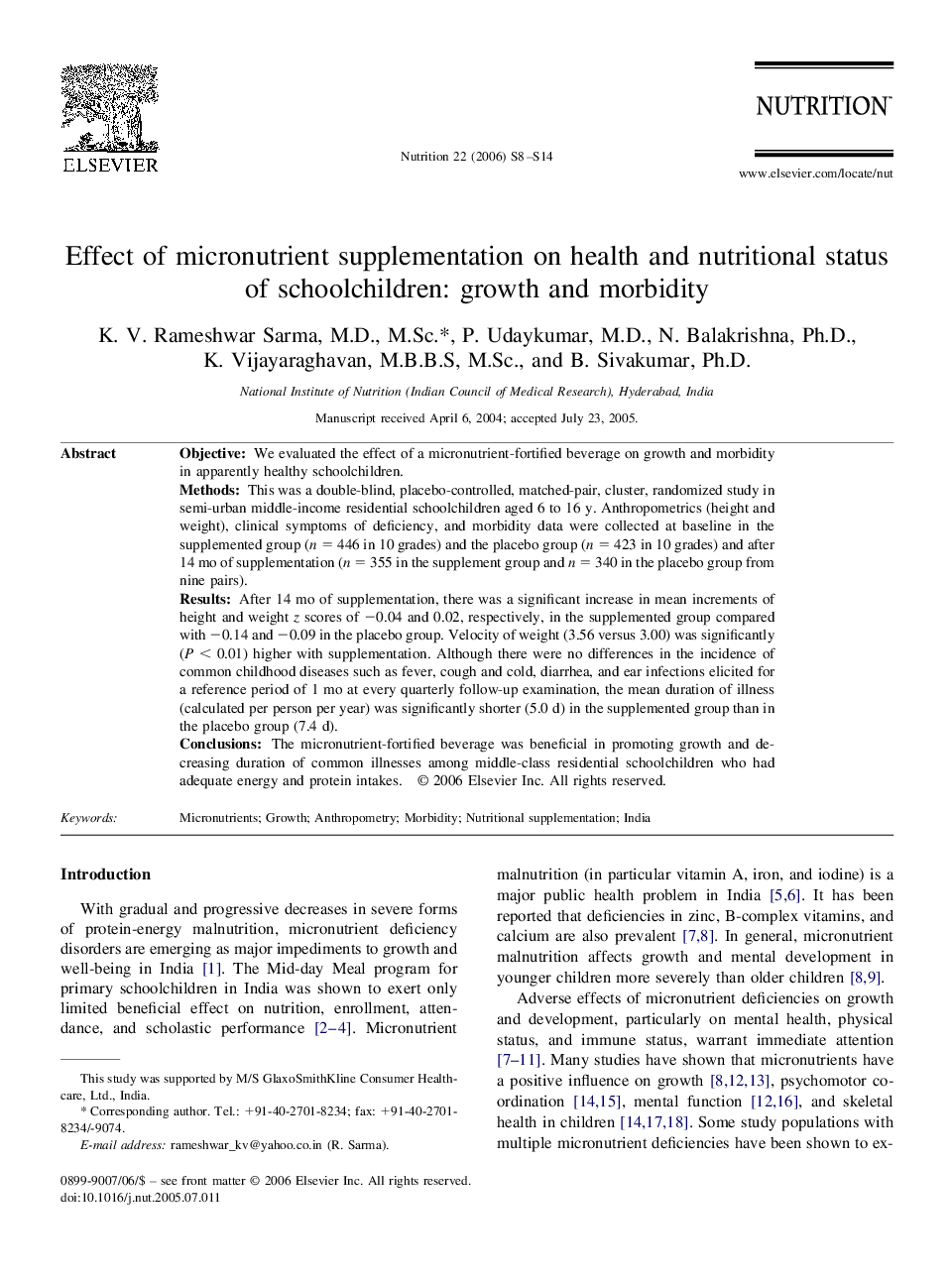| Article ID | Journal | Published Year | Pages | File Type |
|---|---|---|---|---|
| 3277698 | Nutrition | 2006 | 7 Pages |
ObjectiveWe evaluated the effect of a micronutrient-fortified beverage on growth and morbidity in apparently healthy schoolchildren.MethodsThis was a double-blind, placebo-controlled, matched-pair, cluster, randomized study in semi-urban middle-income residential schoolchildren aged 6 to 16 y. Anthropometrics (height and weight), clinical symptoms of deficiency, and morbidity data were collected at baseline in the supplemented group (n = 446 in 10 grades) and the placebo group (n = 423 in 10 grades) and after 14 mo of supplementation (n = 355 in the supplement group and n = 340 in the placebo group from nine pairs).ResultsAfter 14 mo of supplementation, there was a significant increase in mean increments of height and weight z scores of −0.04 and 0.02, respectively, in the supplemented group compared with −0.14 and −0.09 in the placebo group. Velocity of weight (3.56 versus 3.00) was significantly (P < 0.01) higher with supplementation. Although there were no differences in the incidence of common childhood diseases such as fever, cough and cold, diarrhea, and ear infections elicited for a reference period of 1 mo at every quarterly follow-up examination, the mean duration of illness (calculated per person per year) was significantly shorter (5.0 d) in the supplemented group than in the placebo group (7.4 d).ConclusionsThe micronutrient-fortified beverage was beneficial in promoting growth and decreasing duration of common illnesses among middle-class residential schoolchildren who had adequate energy and protein intakes.
